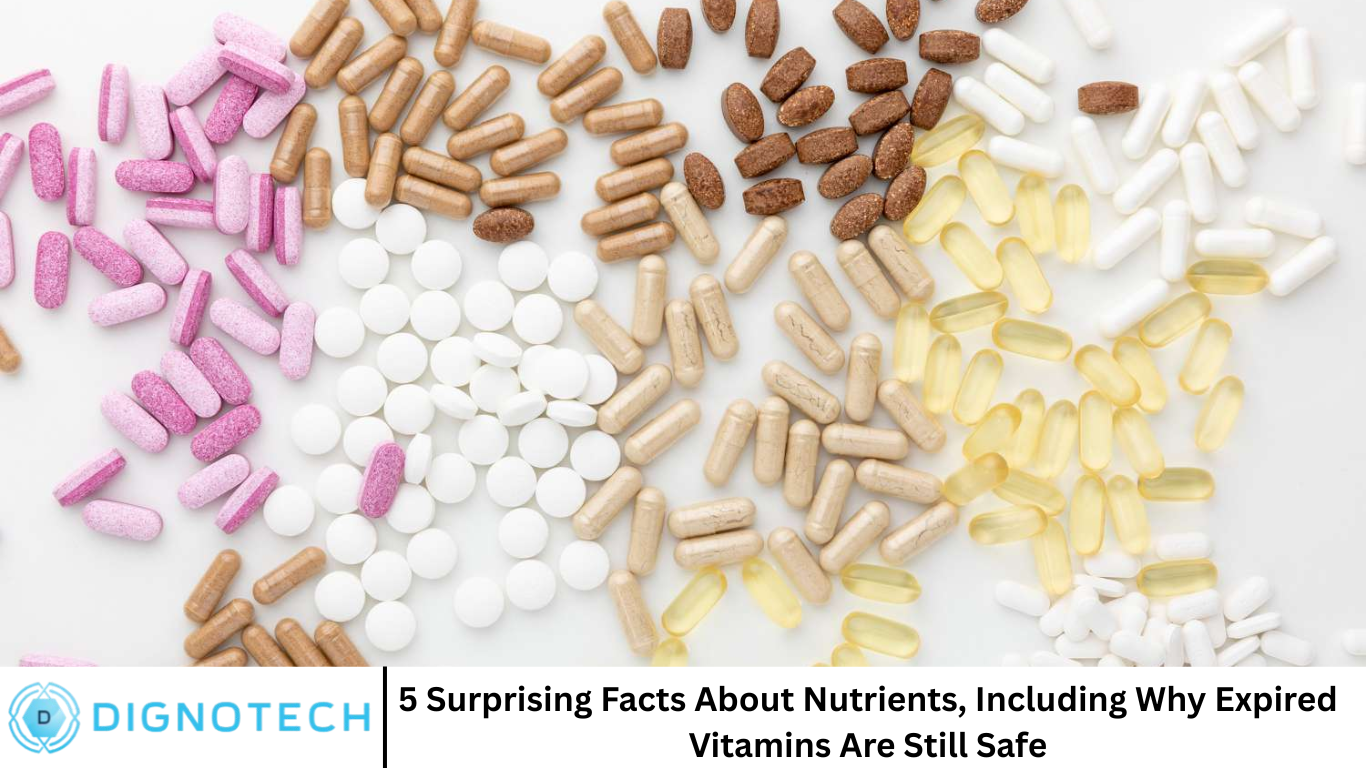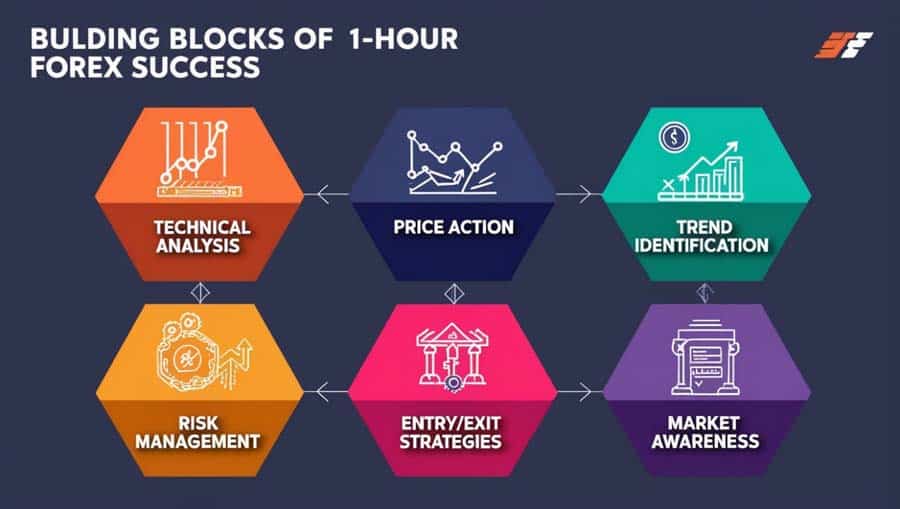5 Surprising Facts About Nutrients, Including Why Expired Vitamins Are Still Safe

In the world of health and wellness, nutrients play a crucial role in maintaining our well-being. From ensuring that our body functions properly to providing energy for daily activities, nutrients are essential. However, many myths and misconceptions surround nutrients, including the safety of expired vitamins. In this article, we will explore five surprising facts about nutrients that you may not have known, including the truth about expired vitamins and why they might still be safe to use.
Expired Vitamins Are Often Still Safe to Use
One of the most commonly held beliefs about vitamins is that once they are past their expiration date, they become ineffective or even harmful. While it’s true that vitamins may lose potency over time, they don’t automatically become dangerous after their expiration date. Expiration dates on vitamin bottles are primarily there to indicate when the product is most likely to be at its peak potency.
How Do Expired Vitamins Work?
Vitamins, like any other product, have a shelf life. After this time, the chemical structure of the vitamins may degrade, and they may not provide the same level of benefits. However, this doesn’t mean that expired vitamins lose all their effectiveness immediately. Depending on the type of vitamin, they may remain effective for months or even years after the expiration date, though their potency may decrease.
For example:
- Vitamin C is known to degrade quickly after its expiration date, losing its effectiveness in as little as a few months.
- Vitamin D, on the other hand, has a longer shelf life and can still be effective for up to a year after the expiration date, though again, potency may be slightly reduced.
If the vitamins have been stored properly—away from heat, light, and moisture—they may still offer benefits even after their expiration date.
What About Safety?
While expired vitamins generally don’t become harmful, it’s important to check the condition of the vitamins before taking them. If the bottle is opened and the pills show signs of discoloration, unusual smell, or visible mold, it’s best to discard them. If stored correctly and the product looks normal, expired vitamins are typically safe to consume.
Nutrients in Whole Foods Are More Effective Than Supplements
Supplements have become a go-to source for many people looking to boost their nutrient intake. However, studies have shown that the nutrients found in whole foods are often more beneficial than those found in supplements.
The Bioavailability of Nutrients
The concept of bioavailability refers to how easily the body can absorb and use a nutrient. Whole foods contain not just individual nutrients but also a range of other beneficial compounds that help improve the bioavailability of these nutrients. For example, the vitamin C found in fruits is paired with flavonoids that enhance its absorption. Similarly, foods rich in fat-soluble vitamins like A, D, E, and K are better absorbed when consumed with a small amount of fat.
Nutrient Synergy in Whole Foods
Whole foods contain a variety of nutrients that work together in synergy. For instance, the fiber in vegetables helps regulate the absorption of sugars, while antioxidants in fruits and vegetables work together to fight oxidative stress. When you consume a variety of nutrient-rich whole foods, your body is more likely to absorb a wider array of vitamins, minerals, and other beneficial compounds that support overall health.
Supplements, while convenient, often do not offer this same level of synergy, and their bioavailability may be lower compared to nutrients found in whole foods. Thus, while supplements can be useful in certain situations, they should not be relied upon as a replacement for a balanced diet rich in whole foods.
You Don’t Always Need a High Dose of Nutrients for Optimal Health
It’s easy to assume that higher doses of vitamins and minerals are better for your health. However, this is not always the case. Many people overconsume nutrients thinking it will benefit their health, but too much of certain nutrients can have adverse effects.
The Risks of Overconsumption
Excessive intake of vitamins and minerals can lead to toxicity. For example:
- Vitamin A in high doses can cause liver damage, blurred vision, and headaches.
- Iron supplementation in excess can lead to gastrointestinal issues and organ damage.
- Vitamin D in excess can cause calcium buildup in the blood, leading to kidney damage.
In most cases, a balanced diet provides all the nutrients your body needs in the right amounts. If you’re concerned about nutrient deficiencies or specific health conditions, it’s best to consult with a healthcare provider before turning to high-dose supplements.
The Importance of Moderation
The body has specific requirements for vitamins and minerals, and these needs are typically met with a balanced diet. Supplementation should only be necessary if you have a known deficiency or if advised by a healthcare professional. In many cases, a daily multivitamin is more than enough to cover any potential gaps in your diet.
Nutrient Deficiencies Can Have Subtle Symptoms
Sometimes, nutrient deficiencies do not present themselves with obvious or dramatic symptoms. Instead, they may cause subtle issues that can be easily overlooked or attributed to other causes.
Common Signs of Nutrient Deficiencies
- Fatigue: A lack of iron, vitamin D, or B12 can lead to chronic fatigue and low energy levels.
- Skin Issues: Deficiencies in vitamins A, C, and E can contribute to dry, dull skin or rashes.
- Digestive Problems: Magnesium and fiber deficiencies can lead to constipation or irregular bowel movements.
- Mood Swings: Lack of omega-3 fatty acids, B vitamins, and magnesium can affect mood regulation, contributing to anxiety, depression, or irritability.
These symptoms are often dismissed as stress, lack of sleep, or aging, but they can be signs that your body is not getting the nutrients it needs. Regularly consuming a variety of nutrient-dense foods is essential to prevent deficiencies.
You Can Overdo Certain Nutrients from Food Alone
While it’s hard to overdose on most nutrients from food alone, some foods are naturally high in certain nutrients, and eating them in excessive amounts could lead to an overload.
Foods High in Certain Nutrients
- Vitamin A: Liver is a rich source of vitamin A. While it’s a nutritious food, eating too much liver could result in vitamin A toxicity.
- Iron: Certain foods, such as red meat and fortified cereals, are high in iron. While iron is necessary for blood health, overconsumption could cause iron overload, leading to damage to organs like the liver.
Balancing Your Diet
To prevent overconsumption of a single nutrient, it’s essential to have a varied diet that includes a wide range of foods. Eating too much of one nutrient-rich food could have unintended consequences, especially if you’re already supplementing or taking fortified products.
Frequently Asked Question
Can expired vitamins still be effective?
Yes, expired vitamins can still be effective, though their potency may decrease over time. As long as the vitamins appear normal (no discoloration, strange smells, or mold), they are generally safe to use for a period after the expiration date.
How do I know if I have a nutrient deficiency?
Nutrient deficiencies can present with subtle symptoms such as fatigue, skin issues, digestive problems, or mood swings. If you suspect a deficiency, consult with a healthcare provider to get proper testing and advice.
Can I get all my nutrients from supplements?
Supplements can help fill nutrient gaps but should not replace a balanced diet. Whole foods provide a range of nutrients that supplements alone cannot offer, such as fiber, antioxidants, and other beneficial compounds.
Are high doses of vitamins better for health?
Not necessarily. High doses of certain vitamins can lead to toxicity and adverse effects. It’s important to consume the recommended daily intake unless advised otherwise by a healthcare professional.
What should I do with expired vitamins?
If the vitamins are in good condition and haven’t changed in appearance, they are generally safe to use, but their potency might be reduced. If in doubt, it’s best to dispose of them and replace them with fresh ones.
Can nutrient deficiencies cause hair loss?
Yes, deficiencies in certain nutrients such as iron, vitamin D, and zinc can contribute to hair loss. If you’re experiencing hair thinning or loss, check your diet and consider consulting a doctor.
Are there risks to getting too many nutrients from food?
It’s rare to overdose on nutrients from food alone, but it can happen with certain foods that are very high in a specific nutrient. Balance is key to ensuring you’re not overconsuming any one nutrient.
Conclusion
Nutrients are vital to maintaining health, but there’s more to understand than simply popping a pill. Expired vitamins, nutrient deficiencies, and the role of whole foods versus supplements are just a few of the surprising facts about how we nourish our bodies. While supplements can be helpful in certain cases, a balanced diet filled with a variety of whole foods is the best way to ensure optimal nutrient intake. By being mindful of how we consume nutrients and understanding their complexities, we can better support our health and well-being.





